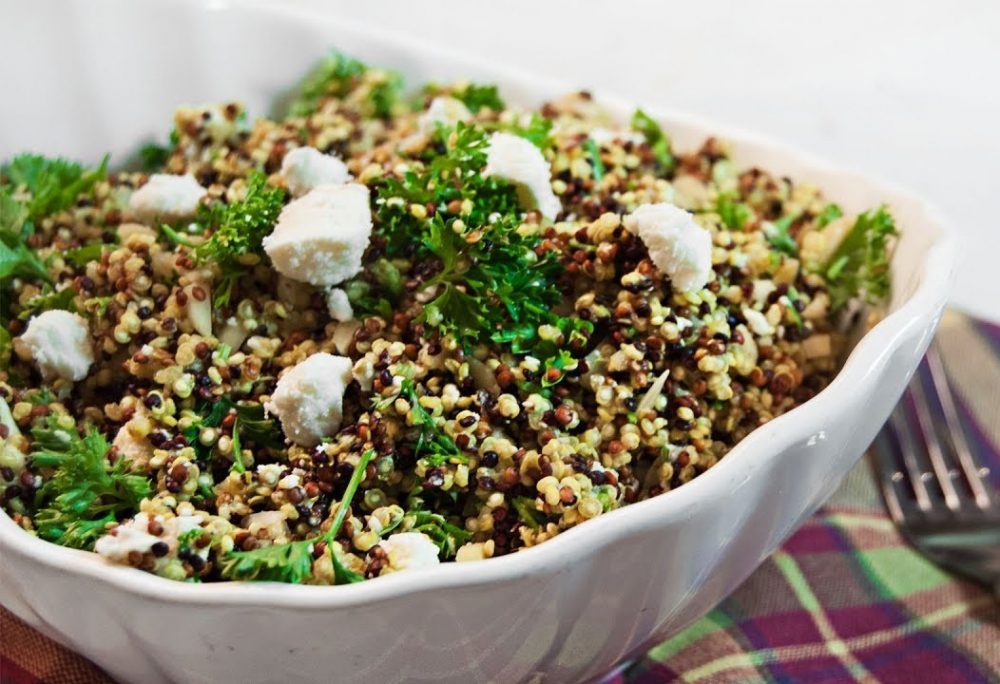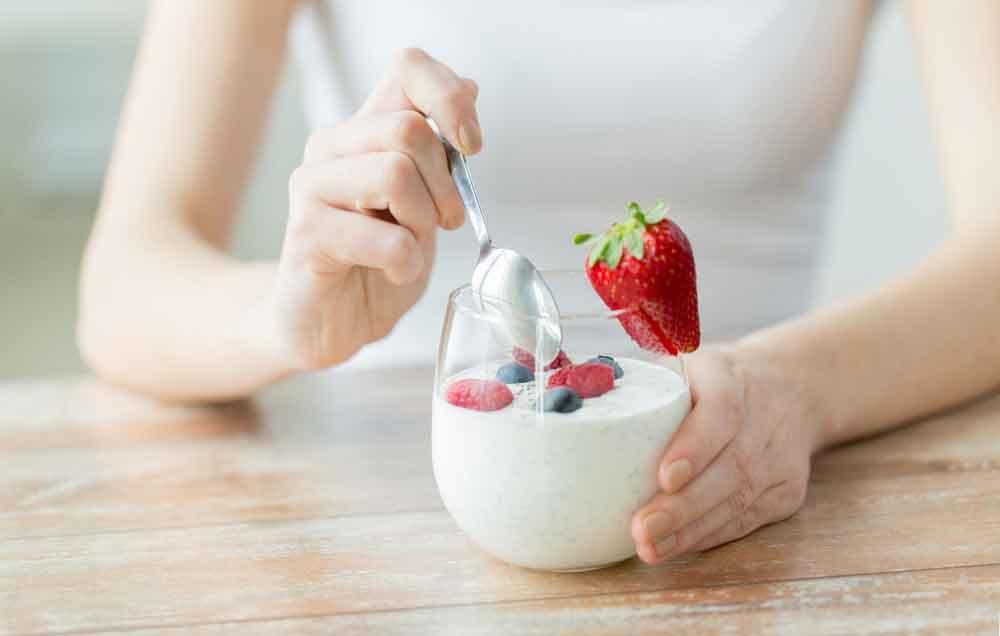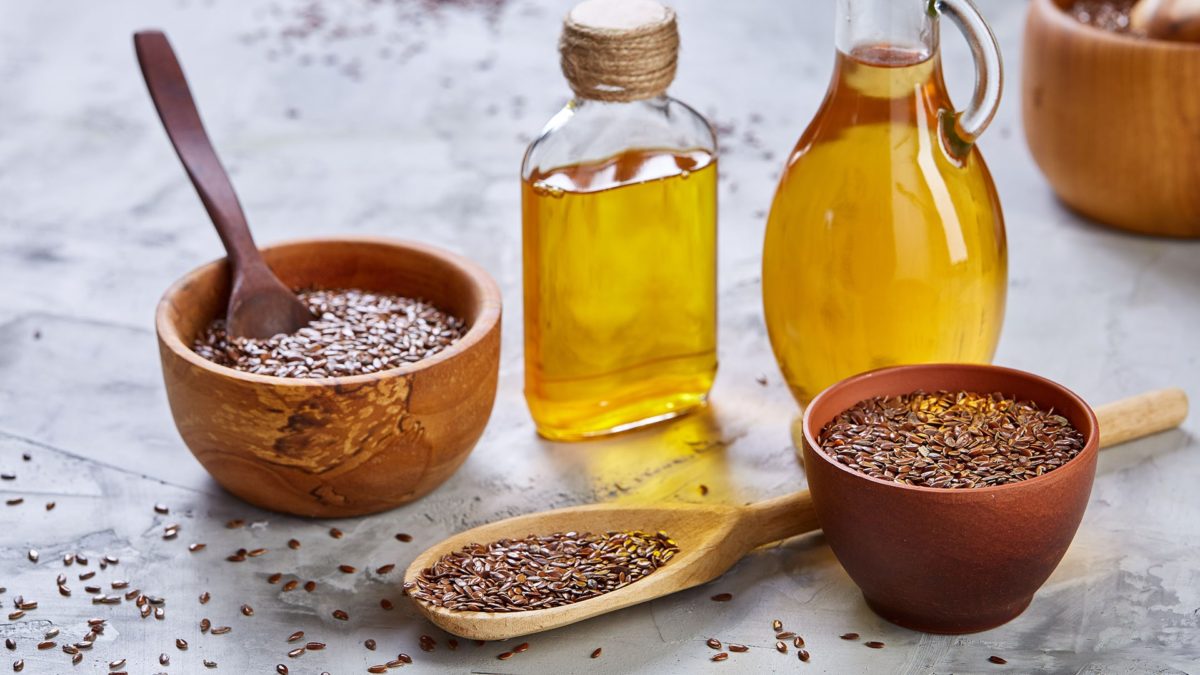From pre-diabetes to menopause, hormonal imbalance can be the cause of many health concerns: weight gain, lethargy, stress, low libido and more. Diet can serve as an effective way to manage the body’s hormones and deal with abnormalities.
Hormones that affect women
Insulin: This hormone tells your body how to use the energy from the food you eat. When we eat a meal, our blood sugar starts to rise. Our body produces insulin to help sugar move from our bloodstream into our cells. Factors such as age, excess body weight, genetics and a diet heavy in processed and junk food can make us insulin resistant. Our cells do not respond properly to insulin and become resistant to this hormone. Blood sugar cannot enter cells.
Leptin and ghrelin (aka “hunger hormones”): they play an important role in appetite control. When leptin increases, it should decrease your appetite. Increasing ghrelin increases your appetite. People who are overweight or obese have usually developed resistance to leptin. Low leptin levels can lead to overeating.
Thyroid hormones: These hormones control metabolism. If your levels are too low, you may have an underactive thyroid, which can contribute to weight gain, fatigue, and loss of muscle mass. Your doctor may prescribe thyroid hormone replacement medications or iodine supplementation.
If your thyroid hormones are too high, you may need medical treatment to bring them back into the proper range. Symptoms of an overactive thyroid include weight loss, bone and muscle loss, and feeling shaky, hot, nervous, and sweaty most of the time.
Estrogen and progesterone: These female hormones are responsible for fertility. It is normal for levels of both to change as women approach menopause. These changes can affect weight, especially for premenopausal women. When your estrogen levels drop during menopause, you may also experience symptoms such as hot flashes, night sweats, vaginal dryness and mood swings.
10 Nutritional Choices to Restore Hormonal Balance
Diet can be a powerful tool in dealing with hormonal imbalance! Here are the top 10 foods to eat to help restore hormonal balance.
Replace refined carbohydrates with whole foods:

Cut back on added sugars and refined or simple carbohydrates to reduce insulin resistance. Refined carbohydrates are found in salty snacks such as cookies, crackers and chips, fast food, white bread and pasta, regular soda and sweets such as cookies, cakes, candies and pastries. Including a fist-sized serving of slow-release whole grains like brown rice, buckwheat and quinoa with 1 or 2 of your meals will ensure we get the fiber we need and the all-important B vitamins that support hormone balance and healthy shedding of spent hormones (especially with period-related problems like PMS);
Healthy fats:

To support healthy leptin and ghrelin levels, incorporate foods with healthy fats into your diet. Always include a portion of fat in every meal which can come from olive oil, flaxseed, avocado oil, raw unsalted nuts or seeds, nut butter and avocado. Omega-3 fatty acids are a nutrient commonly found in fatty fish such as sardines, salmon, mackerel and other foods such as walnuts, chia seeds and egg yolks. If you have heart disease, chronic inflammation, cancer or diabetes, your insulin level may be too high. Eating omega-3s can help reduce insulin resistance.
Look for protein:

Eating protein at every meal, especially breakfast, can help reduce ghrelin levels. Lower ghrelin levels, in turn, may reduce overeating later in the day. Try eggs or Greek yogurt for breakfast. Whether it is animal or vegetable protein is a personal choice. Make sure it’s hormone-free by choosing organic, grass-fed meat.
Eat 2 tablespoons of ground flaxseed daily:

Flaxseeds are the richest dietary source of lignans, a type of phytoestrogen that helps balance estrogen levels by promoting estrogen but also getting rid of “depleted” estrogen. Add to your breakfast, smoothies and soups.
Eat enough iodine:
In adults, an iodine deficiency of less than 10-20 mcg per day can lead to insufficient thyroid hormone production, called hypothyroidism, which disrupts normal metabolic functions such as regulation of heart rate, body temperature, and body weight. Fish, seaweed, iodized salt and eggs are good sources of iodine.
Food sources of magnesium:

Magnesium improves our insulin sensitivity which means our body can better use insulin and regulate blood sugar levels and our nervous system (especially helpful with PMS symptoms and with PCOS). Food sources of magnesium include dark green leafy vegetables (eg spinach, cardamom, kale), avocados, legumes – chickpeas, lentils, beans, soybeans, tofu, nuts (especially almonds, brazil, cashews and pine nuts), seeds ( especially pumpkin, whole grains – quinoa.
Feel fuller with fiber:
Fiber plays an important role in gut health and may also help regulate hormones such as insulin. A 2014 study notes that certain types of fiber balance levels of other hormones as well, which can help a person maintain a healthy weight. Oatmeal or a high-fiber, high-protein breakfast cereal will help you get your day off to a healthy start.
Eat foods rich in vitamin D:
This vitamin controls the production and activity of estrogen and progesterone to keep them balanced. This vitamin also helps regulate insulin and blood sugar levels. Health research shows that in addition to regulating bone metabolism and calcium and phosphorus homeostasis, vitamin D also plays a beneficial role in the management of thyroid disease. Vitamin D, found in tuna, egg yolks, fortified milk and cereals, is an important nutrient for women.
Feed your gut microbiome:
For hormone production and balance, we need to ensure that our gut bacteria thrive, so daily consumption of fermented foods (kefir, olives, fermented vegetables), prebiotic foods and probiotic yogurts, etc. as well as eating as many different foods as possible per week will help maintain the variety you need.
Herbs and spices:

Including a range of fresh (or dried) herbs and spices, especially those with anti-inflammatory properties such as ginger, turmeric, sumac, paprika and garlic, will promote hormonal harmony and ensure we are adding different nutrients to meals us.
If you suspect a hormonal imbalance is interfering with your health, an endocrinologist or gynecologist can help you get to the root of the problem. A healthy diet can also support hormone health.
Denial of responsibility
The Content is not intended to be a substitute for professional medical advice, diagnosis or treatment. Always seek the advice of your doctor or other qualified health care provider with any questions you may have about a medical condition.
